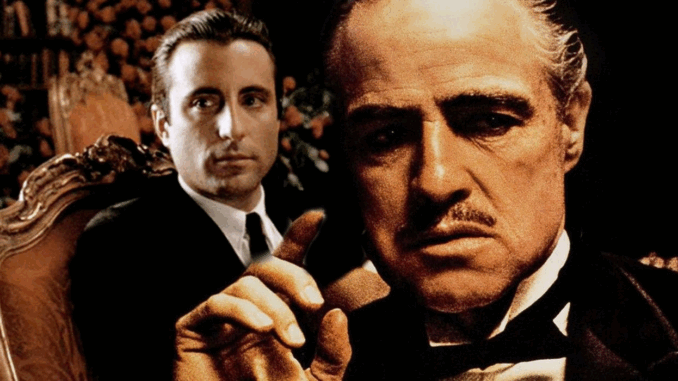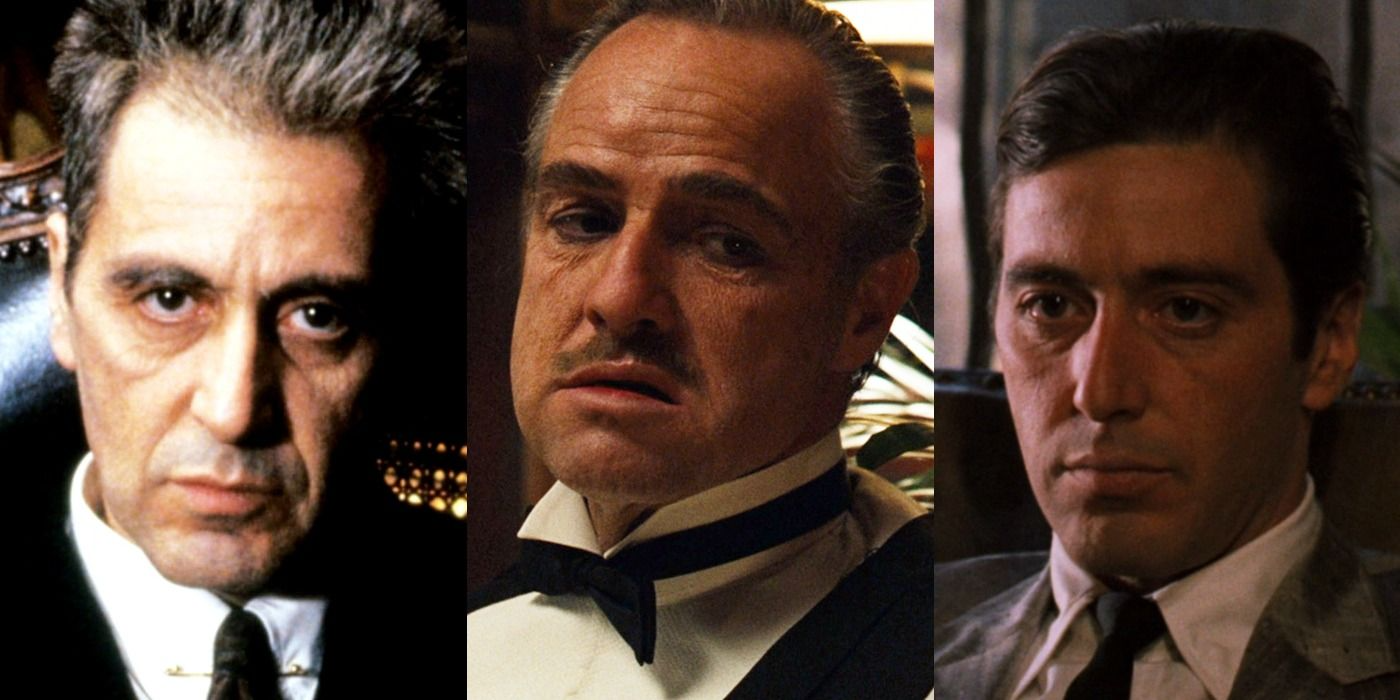
In the glittering shadows of chandeliers and whispered threats, The Godfather unfolds not only as a tale of crime, but as a haunting portrait of ambition, sacrifice, and identity. Since its release in 1972, the film has captivated generations—not just with bullets and betrayal, but with its quiet heartbreaks and moral complexities. This is not just a movie about the Mafia. It’s a Shakespearean tragedy in a modern American suit.
Not Just Crime—A Story of Transformation
At first glance, The Godfather seems like a film about mobsters and power struggles. But look deeper, and it becomes a story of transformation—most notably, the transformation of Michael Corleone. Played with chilling precision by Al Pacino, Michael begins as an idealistic outsider who proudly tells his girlfriend, “That’s my family, Kay. It’s not me.” By the end of the film, he is sitting in the very chair his father once occupied, delivering cold commands that destroy enemies—and his own soul.
This arc, from innocence to dominance, is the soul of The Godfather. It speaks to how circumstances, loyalty, and the illusion of control can push a man beyond recognition—even to himself.
The World of Silence, Shadows, and Strategy
Unlike the loud, explosive crime films of its era, The Godfather is unnervingly quiet. Much of the tension simmers beneath the surface. Violence is never gratuitous; it is earned, and it always has consequences. Every whisper carries weight, every look hides a motive. The film teaches us that in this world, power doesn’t scream—it whispers.
Francis Ford Coppola masterfully crafts this atmosphere. The lighting is dim, drenched in gold and shadow, reflecting the moral ambiguity of its characters. Nino Rota’s haunting score weaves through the film like a ghost, reminding us that beneath all the glamour and money, this is a story of loss.

Vito Corleone: A King Without a Crown
Marlon Brando’s Vito Corleone isn’t just a crime boss—he’s a reluctant king. He believes in family, honor, and tradition, but he’s also fully aware of the cost those values demand. When he refuses to enter the narcotics business, it’s not out of weakness, but because he sees a line he refuses to cross. In a world where lines blur easily, this decision seals his fate.
Vito is both feared and respected. Yet his power is built not on cruelty, but on understanding human nature. He doesn’t ask for violence—but if disrespected, he delivers vengeance with biblical force. Through Vito, the film questions what real strength looks like. Is it in brute force, or in the ability to wait, observe, and strike only when necessary?
The American Dream, Corrupted
Perhaps the film’s most powerful commentary lies in how it portrays the American dream. The Corleones are immigrants who built a life in America through influence, wealth, and sheer will. But at what cost? Instead of freedom, they are trapped in a cycle of violence, secrecy, and fear.
Michael’s final transformation is the ultimate betrayal of that dream. He becomes more powerful than his father—but far more isolated. In protecting his family, he loses it. His marriage to Kay becomes a performance. His brother Fredo becomes an eventual casualty. His soul, once whole, is now fractured.
Timeless Relevance
Why does The Godfather still resonate more than 50 years later? Because at its heart, it’s a deeply human story. It forces us to ask: What are we willing to sacrifice for power? How much of ourselves can we lose before we stop recognizing the person in the mirror?
Every time we watch, we notice something new—a glance, a line, a moral dilemma we once overlooked. It remains relevant because the questions it raises are universal and eternal.
A Film That Becomes a Mirror
The Godfather isn’t just about the Mafia—it’s about all of us. About ambition, love, betrayal, and the silent price we pay for the things we think we want. It holds a mirror to our ambitions and our flaws, and it refuses to blink. That’s why, half a century later, its grip hasn’t loosened. Because behind every great empire, there is always a story of blood, love, and tragic loss.
